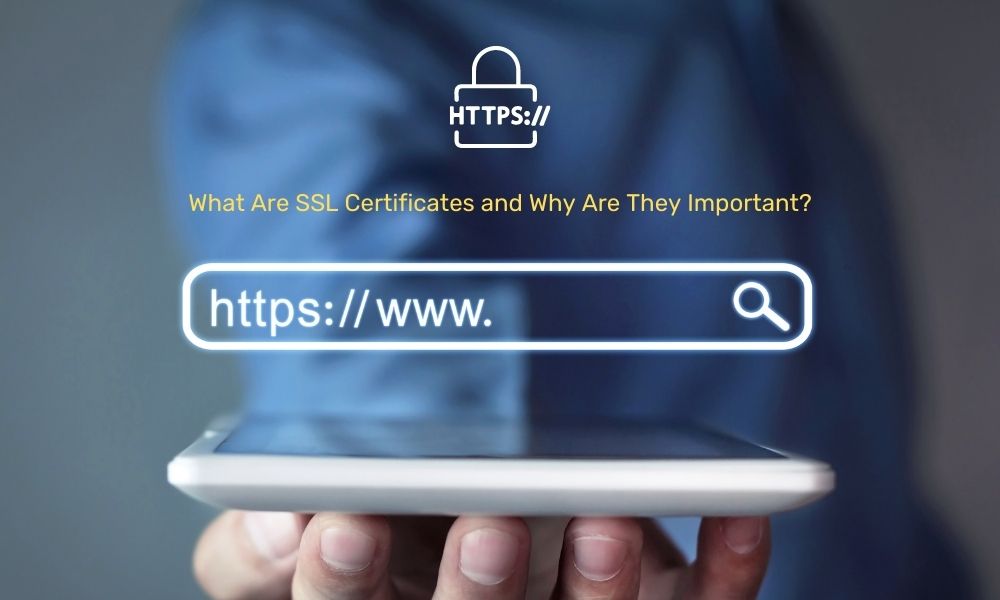The average internet users have no idea what an SSL certificate is. They’ve likely never even heard (or read) the term: it isn’t the sort of thing that’s likely to crop up in a Twitter hashtag or feature in a lifestyle piece. After all, it’s a technical term, and while it happens to have tremendous real-world significance, people don’t always want to know how the systems they rely on every day actually work. They only care that they do work.
But since you’ve clicked on this piece, I can reasonably infer that you’re in one of two boats: either you’re curious about how things work and want to know what this clearly important term actually refers to, or you accidentally happened upon this piece while looking for something else. Either way, you should stick around as we explain what SSL certificates are and why they matter so much because it’s information worth knowing. Let’s begin.
What Is an SSL Certificate?

SSL stands for Secure Sockets Layer, but that part is something of a misnomer: a modern SSL certificate technically uses TLS or Transport Layer Security. Regardless, the function is essentially the same: SSL/TSL technology serves to authenticate links between online entities. An SSL certificate, then, attests to the authenticity of a website — but that’s not all.
More importantly, an SSL certificate uses its encryption to prevent fraudulent man-in-the-middle attacks from getting anywhere. Such an attack is intended to divert server requests to illegitimate pages that often employ phishing techniques. When such a redirect is attempted on a site protected by an SSL certificate, it’ll fail because the target page lacks that certification.
Put simply, an SSL certificate demonstrates the legitimacy of a website, proving to visitors that they can trust it with their personal and financial information. A website with such a certificate will have a URL preceded by HTTPS and the familiar padlock icon. What’s more, a website without one will be flagged as potentially unsafe by your browser.
Related:
- Best WordPress Security Plugins
- Could MSP Be an Insider Threat?
- Best Firewalls for Small Businesses
- Avast Omni Review: Is Avast Omni Worth It?
How to Get an SSL Certificate for Your Site

Getting an SSL certificate for your site is pretty easy at this point. Websites in industries where security is a key concern tend to have it provided by default as part of their subscription tiers. Ecommerce is the best example: drag-and-drop CMS Yola has a simple SSL toggle, for instance. But what if your platform doesn’t offer it as part of the package?
Well, it’s `still easy to handle. There are free SSL authorities — such as Let’s Encrypt — that will handle the certification at no cost. Hence, you only need to go through the setup process provided through your CMS or your hosting solution (depending on how your site was configured). This should be easy to figure out, but if you’re not sure where to start, run a simple Google search for your platform/host along with “SSL setup”.
Overall, whatever approach you take, you should be able to get an SSL certificate in place in under an hour and at no cost — so there’s no good reason not to do it if your site isn’t already secure. For reasons we’re about to go into, it’s extremely important.
See Also:
- How to Setup an eCommerce Store from Home
- How to Grow an eCommerce Business
- eCommerce International Shipping: 6 Best Practices
Why Are SSL Certificates Important?

So, with that note, why are SSL certificates so valuable? It primarily comes down to two things: safety and professionalism. Online fraud has become somewhat familiar due to the rise of eCommerce (there’s a lot of money changing hands through the internet), and pretending to be a trusted authority is often effective. This is why phishing scams are so popular.
Sticking to websites with SSL certificates affords you a strong level of protection. It isn’t flawless protection, of course (there’s always some risk), but it’s solid enough to ward off most threats to financial transactions. And professionalism is pertinent here because it’s pretty easy to acquire an SSL certificate (as we’ve just seen), so when there isn’t such a certificate, it’s an indication of one of three things: illegitimacy, apathy, or incompetence.
In summary, SSL certificates matter so much because they assure website security, and their absence on some websites provides compelling motivation to avoid those websites.
Must Read: Updating WordPress Plugins Safely: Do’s and Don’ts
Can You Go without an SSL Certificate?

If you run a website, can you go without an SSL certificate? Technically, yes, you can — but you shouldn’t. Anyone who finds your website will be met with a warning to go elsewhere, and they’ll likely heed that warning. Why would they take such an obvious risk? It’s so easy to acquire an SSL certificate these days that the absence of one bodes very poorly.
There’s a decent chance that your website already has an SSL certificate that was arranged through your CMS, but it isn’t guaranteed. Check to see if you have the hallmarks mentioned earlier (HTTPS and the padlock) — and if you don’t, take action today to secure your site. It’s only going to become more critical as time goes by.





